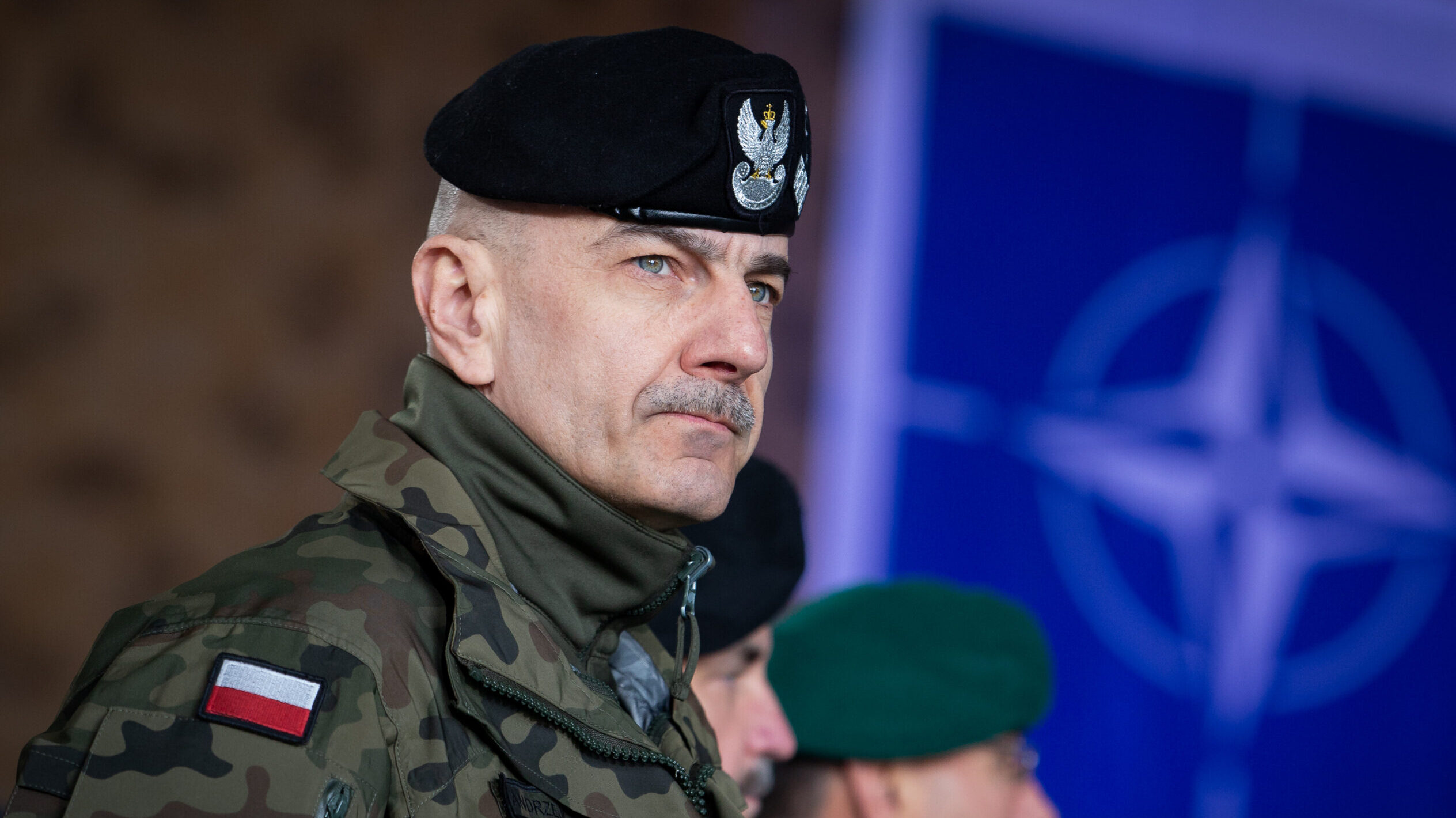
Rajmund Andrzejczak is the Chief of the General Staff for Poland. (Mateusz Wlodarczyk/NurPhoto via Getty Images)
HALIFAX — Regardless of the result of the investigation into a projectile that exploded in Poland and killed two civilians last week, Poland’s top general is adamant that Ukraine should not change its tactics and procedures.
Instead, Russia must be made to answer for its indiscriminate barrage of missile attacks so close to the border of a NATO member — a “risky game” that Moscow is aware could ramp up tensions, Gen. Rajmund Andrzejczak, chief of staff of the Polish armed forces, said in an exclusive interview with Breaking Defense.
“It’s not about Ukraine or Ukrainian air defense systems, it’s about who initiated this situation [and] why Russia is escalating and firing and targeting infrastructure so close to the Polish border,” he said on the sidelines of the Halifax International Security Forum.
“I do not expect any change in Ukrainian performance because they are fighting for their country. They are protecting all their cities and towns. They are fighting for all citizens. I cannot imagine myself telling Ukrainians, ‘Change your position because it’s not sufficient for me.'”
An investigation into the incident could be complete, “in a matter of days,” according to Andrzejczak.
Previously, Polish President Andrzej Duda said the preliminary results of the investigation into the Nov. 15 incident pointed to a stray Ukrainian missile from a Russian-made S-300 air defense system that accidentally entered Polish airspace. Duda has characterized the event as a “shared tragedy” that was “absolutely not a deliberate event.”
NATO Secretary General Jens Stoltenberg and US Defense Secretary Lloyd Austin have voiced support for the Polish assessment, while at the same time underscoring Russia’s ultimate culpability due to its invasion of Ukraine and continued cruise missile attacks.
Meanwhile, Ukrainian President Volodymyr Zelensky has maintained that Ukraine was not responsible for firing the errant missile.
RELATED: Zelensky advisor: Important to wait for results of Poland missile explosion investigation.
Ultimately, Andrzejczak said that the question of attribution is not as important as understanding how the situation on the battlefield laid the groundwork for the incident — a situation where Russia is “escalating the situation closer and closer to the Polish border.” On the day of the mishap, Russia was firing hundreds of missiles at a time, intentionally taking out critical infrastructure and often dealing damage to civilian infrastructure as well.
“It looks like Russia is not able to detect [and effectively target] Ukrainian forces. And now they are killing innocent people because it’s the only way they can achieve their objectives, which is absolutely far away from the standards of Western civilization,” he said.
To try to prevent Ukrainian loss of life, the Ukrainian military responded by using whatever it has on hand — whether US or European-made air defense systems, or older Soviet-era ones. When trying to intercept an enemy missile, it is typical to shoot two to three missiles for every enemy one in the hopes of being able to take down as many as possible, Andrzejczak said.
“If you’re sitting in a position and missiles are coming to your town, and your mom and your sister and kids are still over there, there’s not very much concern. You’re firing what you have,” he said.
In response to the incident, Poland “increased readiness” of certain military units, increasing Air Force patrols and moving some air defense equipment and intelligence assets to try to strengthen the Polish military’s ability to defend against stray missiles invading its airspace.
Poland also accepted an offer from Germany to send additional Patriot air defense systems, to be positioned near the border with Ukraine. The two countries are also working out plans to deploy German Eurofighter Typhoons to augment the Polish air force.
However, even with the added air defense capability, there is risk of a similar mishap occurring if Russia continues raining missiles on Ukrainian cities near Poland, Andrzejczak said. “There’s no single system [that gives] 100% effectiveness.”
Air Force picks Anduril, General Atomics for next round of CCA work
The two vendors emerged successful from an original pool of five and are expected to carry their drone designs through a prototyping phase that will build and test aircraft.


























